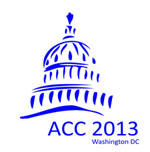|
Sponsoring Organizations
|
|
ACC 2013 Plenary, Semi-Plenary and Public Lectures
|
|
ACC13 plenary videos have been posted at http://www.ieeecss-oll.org
|
|
Societal Challenges for Control Keynote (Semi-Plenary Lecture)
Event-Based Optimization of Stochastic Systems and Its Applications to Social, Financial, and Engineering Problems
Xi-Ren Cao,
Shanghai Jiaotong University and the Hong Kong University of Science and Technology, China
Monday morning, 8:00am-9:00am, June 17, 2013
Grand Ballroom North
Abstract:
: In many practical systems, such as engineering, social, and financial systems, control decisions are made only when certain events happen. This is either because of the discrete nature of sensor detection and digital computing equipment, or the limitation of computing power, which makes state-based control infeasible due to the huge state spaces involved. The performance optimization of such systems is generally different from traditional optimization approaches, such as Markov decision processes, or dynamic programming. In this talk, we introduce, in an intuitive manner, a new optimization framework called event-based optimization. This framework has a wide applicability to the aforementioned systems. With performance potential as building blocks, we develop optimization algorithms for event-based optimization problems. The optimization algorithms are first proposed based on intuition, and theoretical justifications are then given with a performance sensitivity based approach. Finally, we provide a few practical examples to demonstrate the effectiveness of the event-based optimization framework. We hope this framework may provide a new perspective to the optimization of the performance of event-triggered dynamic systems.
Biography:
Xi-Ren Cao
is a chair professor of Shanghai Jiao Tong University and an affiliate member of the Institute for Advanced Study at the Hong Kong University of Science and Technology (HKUST). He has worked as a consulting engineer for Digital Equipment Corporation, a research fellow at Harvard University, and a reader, professor, and chair professor at HKUST. He owns three patents in data- and tele- communications and has published three books in the areas of performance optimization and discrete event dynamic systems. Selected honors include being Fellow of IEEE and IFAC and best paper awards from the IEEE Control Systems Society and the Institution of Management Science. He has served as the Editor-in-Chief of Discrete Event Dynamic Systems: Theory and Applications, as an Associate Editor at Large of the IEEE Transactions of Automatic Control, as a Member of the Board of Governors of the IEEE Control Systems Society, and as a Member on the Technical Board of IFAC. His current research areas include financial engineering, stochastic learning and optimization, performance analysis of economic systems, and discrete event dynamic systems. He holds a PhD degree from Harvard University.
|
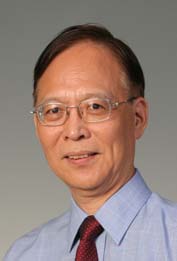
|
|
Sustainability Keynote (Semi-Plenary Lecture)
The Key to a Successful Next Generation of Buildings:
Controlling for Energy Efficiency
Paul Torcellini,
National Renewable Energy Laboratory, USA
Monday morning, 8:00am-9:00am, June 17, 2013,
Grand Ballroom South
Abstract:
Buildings account for 40% of U.S. energy consumption, not including other energy and resources that also support building activities. To reduce this demand,
aggressive energy efficiency strategies need to be applied from the building to the utility grid. Some buildings, including large-scale zero-energy buildings, have
achieved high levels of efficiency with designs that emphasize efficiency, advanced controls, and occupant involvement. This talk will address the following
questions: What is the role of controls in the built environment? Can controls change the way energy is used in the next (and the past) generations of
buildings? How can we put control theory into effective practice to significantly increase energy efficiency? Do control theorists, control manufacturers, and
building occupants understand each other? Come hear how we can create a world where buildings produce energy for a completely renewable grid.
Biography:
Paul Torcellini is
the Principal Group Manager for Commercial
Buildings Research at the National Renewable Energy Laboratory
(NREL), which is a Department of Energy national laboratory. He
leads the Commercial Building's Research Efforts, which is dedicated to developing methods
and technologies to achieve substantial energy savings in commercial buildings—both new and
retrofit. This work has been recognized by many awards, peer-reviewed technical papers, and
other publications. Paul has been at the NREL for 18 years. He is also an adjunct faculty
member at Colorado School of Mines. Paul is a registered Professional Engineer and holds a
PhD from Purdue University.
|
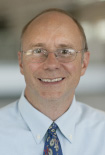
|
|
Public Lecture
How We Interact with Robots, Feedback Loops, and Autonomous
Systems:
Historical Perspectives and a Look Forward
David A. Mindell,
Massachusetts Institute of Technology (MIT), USA
Monday evening, 6:30pm-7:30pm, June 17, 2013
Grand Ballroom
Abstract:
Human operations in technological systems are becoming "remote" or "automated" in a broad variety of arenas. What are these new technologies doing to us? What becomes of
the human role in critical activities like warfare, exploration, or transportation when more and more of the critical tasks seem to be done by machines? This talk
focuses on these phenomena in extreme environments where human and technical actions are real-time and life-critical such as military robotics, undersea exploration,
spaceflight, and aviation. In each, the stakes are high, professional identities tend to be strong and well-defined (e.g. pilots, explorers, astronauts, etc.), and
technological "aids" to human performance deployed with great intensity. Drawing on historical and present-day examples, the talk examines how remote and automated
systems have not eliminated, but rather shifted human presence in space and time, and the implications of those shifts for human identity and experience. An historical
overview of control systems in the twentieth century shows how such shifts in human presence co-evolved with control theory, digital computing, and real time controls.
Examples are presented from military control systems and aviation. The Apollo lunar landings are presented in depth as the culmination of these twentieth century
trajectories and a founding moment in modern, digital controls linked in extensive social networks.
Present day examples are presented, including operating the Predator and Reaper remotely-piloted aircraft, undersea remote- and autonomous- vehicles, and aircraft
cockpit controls. Some prospects are offered about the future co evolution of control systems and human roles in automated cars, surgery, and other arenas.
Biography:
David A. Mindell,
an historian and electrical engineer, is the Dibner Professor of the History of Engineering and Manufacturing and Professor of
Aeronautics and Astronautics at MIT, and he has formerly been department head of MIT's Program on Science, Technology, and Society (STS). He is an expert on the history
and technology of human/machine relationships in complex technological systems. During the 2011-2012 academic year he was a Visiting Scholar at Aurora Flight Sciences
Inc. where he worked on autonomy systems for unmanned aerial vehicles. Mindell's current research involves examining human/machine relationships in extreme environments,
including human spaceflight, military robotics, undersea exploration, aviation, and surgery, with a goal toward developing general models of networks of humans and
machines. Mindell's books have received several prizes and include Digital Apollo: Human and Machine in Spaceflight (MIT Press, 2008), Between Human and Machine:
Feedback, Control, and Computing before Cybernetics (Johns Hopkins, 2002), and Iron Coffin: War, Technology, and Experience Aboard the USS Monitor (Johns Hopkins, 2012).
For details, a poster
for this public lecture is available
here.
|
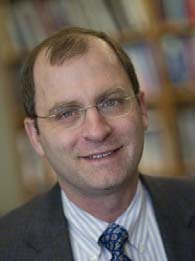
Photo by: Stuart Darsch, Boston
|
|
Smart Healthcare Systems Keynote (Semi-Plenary Lecture)
Intelligent Monitoring and Decision Support in Healthcare Systems
Markus Fromherz,
Intelligent Systems Laboratory, Xerox Corporation, USA
Tuesday morning, 8:00am-9:00am, June 18, 2013,
Grand Ballroom North
Abstract:
Healthcare in the U.S. is at a transition point. Costs for care have risen to unsustainable levels and are among the highest in the world without commensurate benefits. At the same time, new care models and the digitization of healthcare offer tremendous opportunities to improve health and health care while reducing costs. In this context, intelligent technologies are playing a growing role in providing better understanding and decision support in healthcare systems. Solutions range from population health management tools for organizations to predictive clinical decision support applications for individuals. Advanced technologies are also applied in administrative tasks such as insurance eligibility determination and fraud detection. Looking ahead, the advent of personalized medicine will bring the promise and need for intelligent technologies into even sharper focus. This talk will review current trends, discuss representative approaches, and show examples that demonstrate the value of intelligent monitoring and decision support in healthcare systems.
Biography:
Markus Fromherz is the Chief Innovation Officer of Healthcare at Xerox Corporation, where he is responsible for innovation across the payer, provider, government, and employer healthcare businesses in the Xerox Services group. Markus has also been a Vice President at the Palo Alto Research Center, where he directed PARC's Intelligent Systems Laboratory, which develops advanced information and automation systems based on intelligent user interfaces, language and image understanding, and reasoning algorithms. Applications range from business software to embedded systems to cleantech applications. Markus' research interests have been in the domain of intelligent embedded software including constraint-based modeling; model-based planning, scheduling, and control; and model-based design analysis and optimization. He has published widely and spoken internationally and has more than 40 issued and pending patents.
|
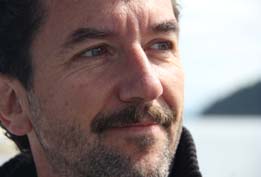
|
|
Semi-plenary:
Game Theory: A Modern Approach to Multiagent Coordination
Jason Marden,
University of Colorado Boulder, USA
Tuesday morning, 8:00am-9:00am, June 18, 2013,
Grand Ballroom South
Abstract:
The central goal in multiagent systems is to design local control laws for the individual agents to ensure that the emergent global behavior is desirable with respect to a given system level objective. Game theory is beginning to emerge as a valuable set of tools for achieving this goal as many popular multiagent systems can be modeled as games, e.g., sensor coverage, consensus, task allocation, among others. Game theory is a well-established discipline in the social sciences that is primarily used for modeling social behavior. Traditionally, the preferences of the individual agents' are modeled as utility functions and the resulting behavior is assumed to be an equilibrium concept associated with these modeled utility functions, e.g., Nash equilibrium. This is in stark contrast to the role of game theory in engineering systems where the goal is to design both the agents' utility functions and an adaptation rule such that the resulting global behavior is desirable. The transition of game theory from a modeling tool for social systems to a design tool for engineering promotes several new research directions that we will discuss in this talk. In particular, we will focus on the question of how to design admissible agent utility functions such that the resulting game possesses desirable properties, e.g., the existence and efficiency of pure Nash equilibria. Our motivation for considering pure Nash equilibria stems from the fact that adaptation rules can frequently be derived which guarantee that the collective behavior will converge to such pure Nash equilibria. Our first result focuses on ensuring the existence of pure Nash equilibria for a class of separable resource allocation problems that can model a wide array of applications including facility location, routing, network formation, and coverage problems. Within this class, we prove that weighted Shapley values completely characterize the space of local utility functions that guarantee the existence of a pure Nash equilibrium. That is, if a utility design cannot be represented as a weighted Shapley value, then there exists a game for which a pure Nash equilibrium does not exist. Another concern is distributed versus centralized efficiency. Once distributed agents have settled on an equilibrium, the resulting performance need not be the same as from a centralized design (cf., so-called "price-of-anarchy"). We compare different utility design methods and their resulting effect on efficiency. Finally, we briefly discuss online adaptation rules leading to equilibrium.
Biography:
Jason Marden is an Assistant Professor in the Department of Electrical, Computer, and Energy Engineering at the University of Colorado. He received a BS in Mechanical Engineering in 2001 from UCLA, and a PhD in Mechanical Engineering (under the supervision of Jeff S. Shamma) in 2007 also from UCLA, where Jason was awarded the Outstanding Graduating PhD Student in Mechanical Engineering. After graduating from UCLA, he served as a junior fellow in the Social and Information Sciences Laboratory at the California Institute of Technology until 2010 when he joined the University of Colorado. In 2012, he received the Donald P. Eckman award and an AFOSR Young Investigator Award. His research interests focus on game theoretic methods for feedback control of distributed multiagent systems.
|
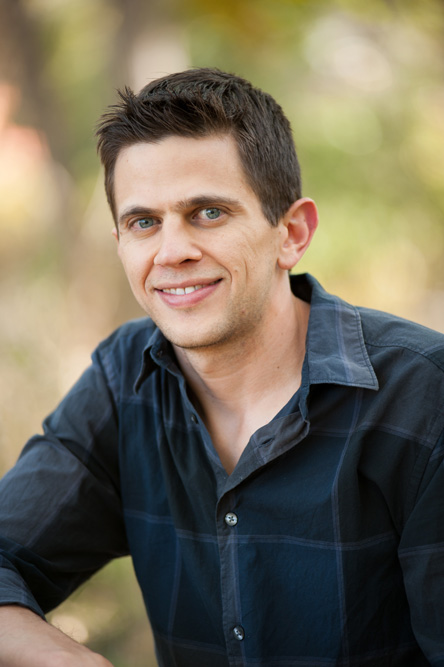
|
|
Plenary Lecture
Advanced Motion Control for High Tech Systems
Maarten Steinbuch, Eindhoven University of Technology, The Netherlands
Wednesday morning, 8:00am-9:00am, June 19, 2013,
Grand Ballroom
Abstract:
Advanced motion systems like pick-and-place machines used in the
semiconductor industry challenge the frontiers of mechatronic design and
systems and control theory and practice. In the design phase,
control-oriented design of the electro-mechanics is necessary in order to
achieve tight performance specifications. Once realized, a
machine-in-the-loop procedure can be explored to close the design loop
during experiments as well as for experimental model building,
model-based
control design, and implementation and performance evaluation.
Nevertheless, reliable numerical tools are required to meet the
challenges
posed with respect to dimensionality and model complexity. Extension of
linear modeling techniques towards some classes of nonlinear systems is
relevant for improved control of specific motion systems, such as those
with friction. Further, medical robotics can greatly benefit from the
experiences of the high tech motion systems industry, and an eye surgical
robot with haptics will be shown as an example. Other challenging
applications in need of advanced design and modeling and control are
fuel-efficient vehicles (including ultra-clean engines), vehicle electric
and hybrid power trains, and plasma fusion processes. Finally, the 2012
World Champion Soccer Robots (midsize) will also be discussed as an
example of advanced motion control for high tech systems.
Biography:
Maarten Steinbuch
is a Distinguished University Professor at
Eindhoven University of Technology (TU/e), where he is head of the
Control
Systems Technology group of the Mechanical Engineering Department. He is
also Director of the TU/e Automotive Systems Graduate Program and
Scientific Director of the Centre of Competence for High Tech Systems of
the Federation of Dutch Technical Universities. He has over 12 years of
industrial experience with Philips Research Labs and Philips Center for
Manufacturing Technology. He is Editor-in-Chief of the IFAC journal on
Mechatronics and an Associate Editor of the International Journal of
Powertrains. His research interests are in modeling and control of
advanced motion systems, robotics for care and cure, automotive
powertrains, and fusion plasmas.
|
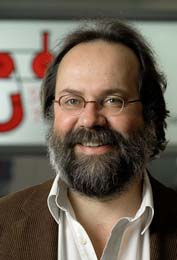
Photo by: Bart van Overbeeke Fotografie
|
|
|
|
|
Key Dates
Draft Manuscripts:
Due September 17, 2012 (closed)
Nomination for
Best Student Paper Award:
Nov 2, 2012 (closed)
Acceptance/Rejection Notice:
by January 31, 2013
Final Manuscript Submission:
due March 15, 2013
(closed)
Sponsorship Opportunities
Sponsor ACC 2013 and
have your logo featured here.
Gold Sponsors
Silver Sponsors
Bronze Sponsors
|

